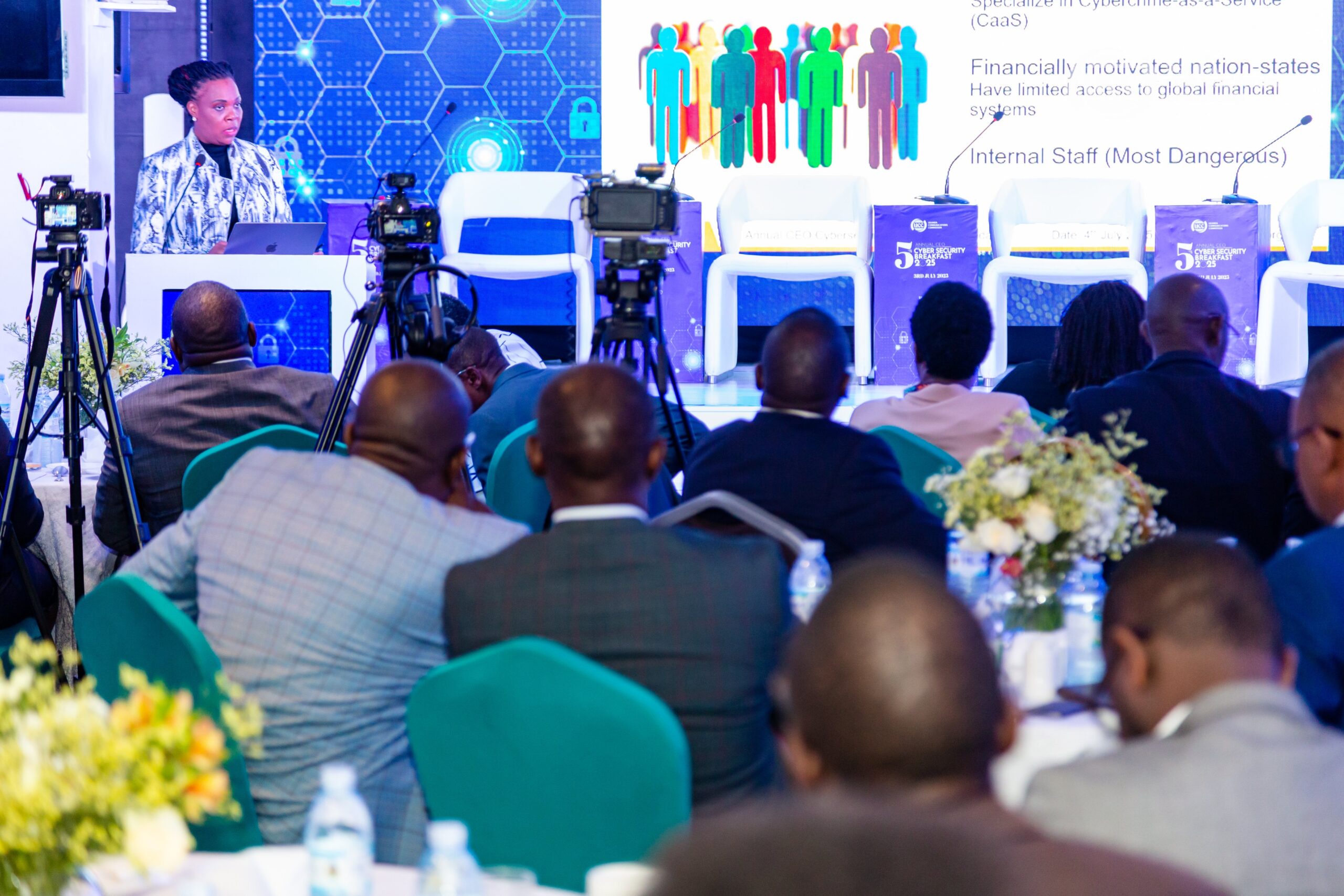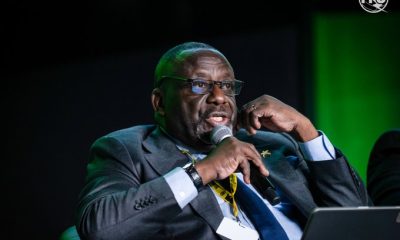Tech and Communication
UCC Fortifies Digital Defenses with New Telecom Cybersecurity Guidelines
Uganda’s telecommunications sector is significantly boosting its cybersecurity resilience with the introduction of stringent new minimum guidelines for all licensed operators. This crucial move, spearheaded by the Uganda Communications Commission (UCC), comes amidst the escalating global threat of cyberattacks, which inflict an estimated $10 trillion in annual losses on economies worldwide.
The UCC unveiled these comprehensive standards on Thursday, July 3, 2025, during its 5th Annual CEO Cybersecurity Breakfast. Held at UCC House-Bugolobi, the event gathered top executives from licensed telecom companies under the pertinent theme: “The CEO’s Strategic Edge: Bridging Past Wins with Future Cyber Visions.” The theme highlighted the indispensable role of leadership in safeguarding Uganda’s ongoing digital transformation.
A cornerstone of the breakfast meeting was the presentation of the UCC’s new Minimum Cyber Security Guidelines. These far-reaching standards apply across the entire cybersecurity ecosystem, encompassing the competencies of personnel, the robustness of infrastructure, the security of critical systems, and the efficacy of internal controls.
A UCC representative at the gathering emphasized the burgeoning risks associated with increased connectivity, stating, “As we get connected more and more, the risk that there is in this connection is security. How secure are these networks? How secure is our data? Data is the next currency, even more so than physical currency.” The representative further highlighted the imperative to secure digital assets, noting that “the phone is becoming a wallet,” and stressed the need to protect these “digital wallets” and organizational resources in an increasingly interconnected world.
The new guidelines strictly mandate that operators maintain adequately trained and certified personnel to manage their systems. Experts at the event underscored that “our resilience in the cybersecurity space is as strong as the people we have, and it’s as weak as the people we have,” identifying staff as both the most significant critical risk and the highest protectors of systems.
Collaboration emerged as a paramount theme throughout the discussions, with the UCC stressing that “working alone in a connected environment will be the most stupid thing to do.” The interconnected nature of global networks means that “what happens in the US, a threat that happens in a particular organization, can be a threat by a press of a button to threaten systems in Uganda,” rendering all nations vulnerable.
Beyond the corporate sphere, the UCC also emphasized the critical importance of individual user awareness and security practices. While robust network security is vital, an estimated 80% of cyberattacks are attributed to physical system vulnerabilities stemming from user behavior. Public Wi-Fi hotspots, in particular, were singled out as highly insecure environments.
“Never go into a digital space on your phone to do something very critical in a hotspot,” a UCC representative cautioned. “If you have a video which is very important, again, it’s not advisable, but don’t engage in financial services, for example, on a hotspot, because hot spots are not secure.” Such environments, the representative warned, are often where hackers “will be putting their probes to enter into your phone, take away your passwords and take away your phone.”
The profound economic fallout of cyberattacks was also a key point of discussion. The staggering estimated global cost of $10 trillion annually significantly eclipses the entire economy of any African nation, underscoring the severe financial repercussions that can result from incidents such as denial-of-service attacks, ransomware, and various forms of digital fraud.
The UCC affirmed that these new minimum standards will not be confined solely to telecom operators but will also be extended to other media, including television and radio organizations, to ensure comprehensive, sector-wide resilience. This strategic alignment with Uganda’s National Cyber Security Vision and the recently launched National Development Plan IV (NDP IV) aims to fortify the nation’s overall digital security posture against the backdrop of increasing digitalization and associated risks.
The annual CEO Cybersecurity Breakfast continues to serve as a vital platform for fostering knowledge exchange, strategic insights, and collaborative approaches to enhance cybersecurity resilience across Uganda’s rapidly expanding telecommunications sector.
Comments



























